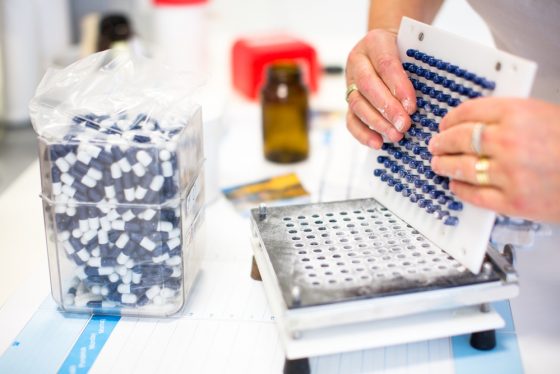More medicine shortages last year as production shifts abroad


Dutch pharmacies registered more than 1,500 medicine shortages last year, mainly because of problems with production, supply and quality, pharmacists’ organisation KNMP said at the weekend.
This is the highest figure ever recorded and in itself a ‘shocking record’, the KNMP said. A drug is classified as being in short supply if the delivery time is over two weeks.
In 57% of cases, the shortages were solved within 10 weeks and in most cases pharmacies were able to solve the problem by providing patients with another version of the drug they had been originally prescribed.
Since January 1 this year, drugs traders and wholesalers are required to keep enough stock to make sure gaps of up to six weeks in supply can be bridged, although government inspectors will not get tough on failures until 2024.
‘This is absolutely necessary, because patients, pharmacists and other care providers are having to deal with the problems on a daily basis, KNMP chairman Aris Prins said.
Weaknesses
Hans Waals, director of Dutch drugs manufacturer Tiofarma, told broadcaster NOS that the stockpile rules do not eradicate the weaknesses in the system because the Netherlands has become increasingly reliant on medicines from abroad.
There are now just 20 drugs manufacturers in the Netherlands, following the bankruptcy of Innogenerics, the only one to produce generic medicines exclusively for the Dutch market.
The health ministry told news agency ANP that there needs to be a Europe wide approach to drugs shortages. ‘Scarcity is a global problem and can only be solved internationally,’ a spokesman said.
Generics
The Netherlands has some of the cheapest generic drugs in Europe which is not without its downsides, said Jean Hermans from generic medicine association Bogin.
He told broadcaster NOS that over the past five years, the number of generic drugs produced in the Netherlands has gone down from 8,000 to 4,700 and that the Netherlands is increasingly reliant on manufacturers in China, India and Spain.
‘If one of the big four health insurers don’t include a drug on their approved list – and of course they go for the cheapest option – that a factory will stop production because it is no longer profitable,’ he said.
Thank you for donating to DutchNews.nl.
We could not provide the Dutch News service, and keep it free of charge, without the generous support of our readers. Your donations allow us to report on issues you tell us matter, and provide you with a summary of the most important Dutch news each day.
Make a donation